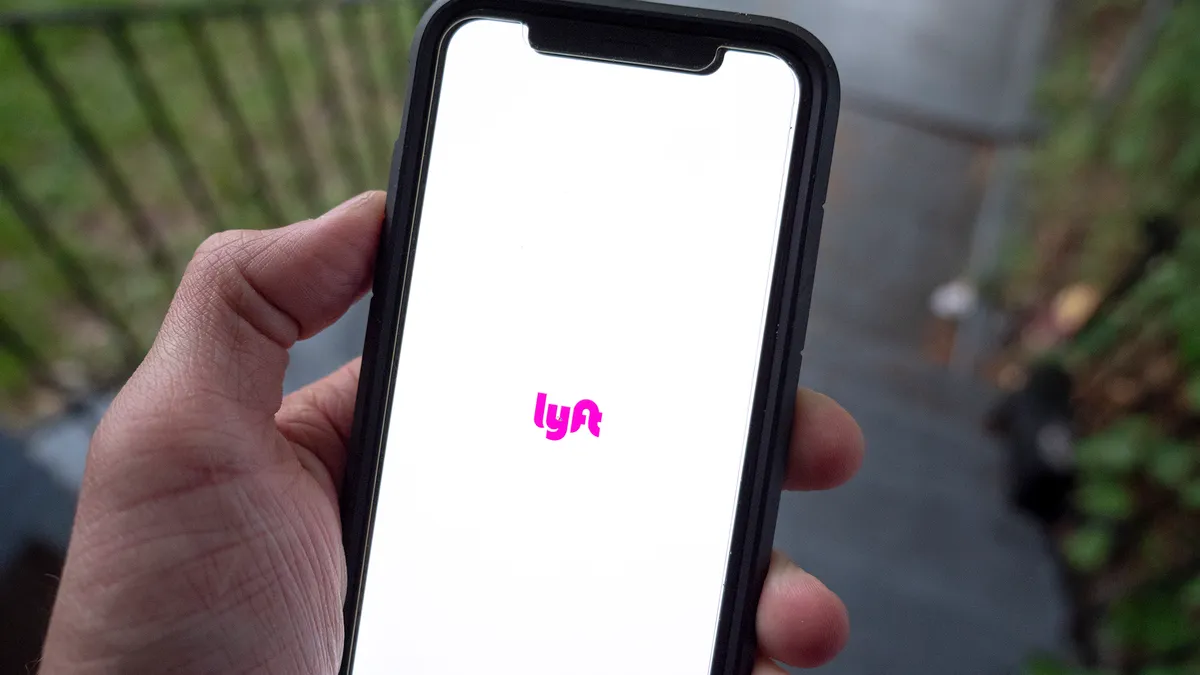Dive Brief:
- Ride-share company Lyft announced July 28 the launch of Lyft Pass, a product that allows businesses to create custom transportation arrangements and pay to cover the cost of Lyft rides for workers.
- Lyft said it previously partnered with organizations to create custom transport programs, and this includes the partnerships it formed with healthcare systems and retailers to move workers during the COVID-19 pandemic. But the company decided to launch Lyft Pass this month as employers decide how to bring employees back to the workplace. "We've found that simplifying access to transportation is essential for successful employment and can have a profound impact on job opportunity, employee retention, productivity, and career success," a Lyft spokesperson told HR Dive in an email.
- Lyft Pass can also be used to cover the costs of rides for customers, patients, guests and other users. The program allows organizations to customize program rules and restrictions for rides, like limiting them to certain locations, times of day and ride types. Employers may also set limits on the amount of credit or rides they will cover.
Dive Insight:
The company's announcement follows previous commitments made in response to the COVID-19 pandemic. In April, Lyft said it would provide free ride credit to essential workers via partnerships with national organizations with a particular emphasis on assisting communities of color.
Lyft's competition is experimenting with similar offerings. Namely, Uber has pledged to provide free rides and food deliveries for groups including front-line healthcare workers and first responders.
Asked how Lyft is ensuring the safety of riders and drivers during the pandemic, the spokesperson said the health and safety of Lyft's community "is the first priority," noting that the company requires all riders and drivers to self-certify that they are symptom-free. Lyft also requires both groups to wear face masks throughout rides and follow guidelines from the Centers for Disease Control and Prevention and local health officials to request a ride or drive with Lyft. It launched a program earlier this month to provide vehicle partitions to frequent drivers in certain cities, with plans to expand this program in the future.
"We have also been working closely with our business customers to understand their transportation needs," the spokesperson said. "As things continue to evolve, we'll be diligent about what protective measures we use to reduce risk."
The use of ride-share programs may be a test case for commuter benefits that have faced obstacles to widespread adoption. Sources who previously spoke to HR Dive in 2019 said that although long commutes can hurt employee engagement and retention, employees' own transportation preferences and the impact of tax incentives may be hurting adoption of commuter benefits and public transportation benefits.
And despite the trend toward remote work brought on by the pandemic, transportation benefits may be particularly valuable to certain segments of the workforce. A February report by the Northeast Business Group on Health found that employers can aid low-income workers with diabetes, for example, by providing transportation services or reimbursement for public transit or rideshares used to travel to appointments.













